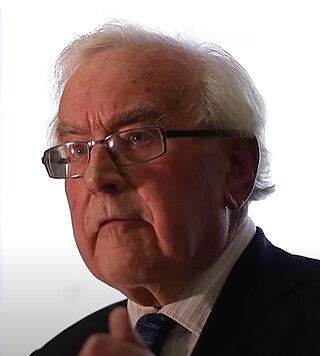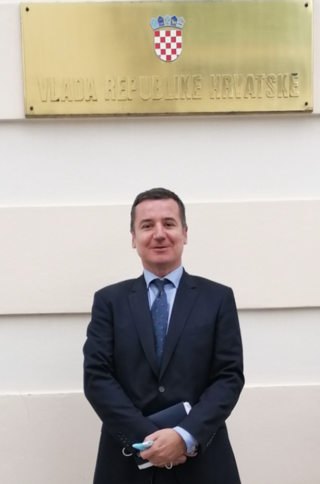
The Tatmadaw is the military of Myanmar. It is administered by the Ministry of Defence and composed of the Myanmar Army, the Myanmar Navy and the Myanmar Air Force. Auxiliary services include the Myanmar Police Force, the Border Guard Forces, the Myanmar Coast Guard, and the People's Militia Units. Since independence in 1948, the Tatmadaw has faced significant ethnic insurgencies, especially in Chin, Kachin, Kayin, Kayah, and Shan states. General Ne Win took control of the country in a 1962 coup d'état, attempting to build an autarkic society called the Burmese Way to Socialism. Following the violent repression of nationwide protests in 1988, the military agreed to free elections in 1990, but ignored the resulting victory of the National League for Democracy and imprisoned its leader Aung San Suu Kyi. The 1990s also saw the escalation of the conflict between Buddhists and Rohingya Muslims in Rakhine State due to RSO attacks on Tatmadaw forces.

The Ministry of Defence is the department responsible for implementing the defence policy set by His Majesty's Government, and is the headquarters of the British Armed Forces.
The Defence Strategic Policy and Intelligence Group (SP&I) of the Australian Government Department of Defence is responsible for defence diplomacy, strategic policy, international security, and military intelligence co-ordination and advice to the Prime Minister of Australia, Minister for Defence, Secretary of the Department of Defence, and Chief of the Defence Force. The Defence Strategic Policy and Intelligence Group is led by the Deputy Secretary for Strategic Policy and Intelligence and comprises three policy divisions and two intelligence agencies.

Andrew Brooke Leslie is a retired Canadian Forces Lieutenant-General and politician who served as the Chief of the Land Staff from 2006 to 2010 and as a Member of Parliament representing the riding of Orléans in the House of Commons, from 2015 until 2019.

Keith Brian Alexander is a retired four-star general of the United States Army, who served as director of the National Security Agency, chief of the Central Security Service, and commander of the United States Cyber Command. He previously served as Deputy Chief of Staff, G-2 (Intelligence), United States Army from 2003 to 2005. He assumed the positions of Director of the National Security Agency and Chief of the Central Security Service on August 1, 2005, and the additional duties as Commander United States Cyber Command on May 21, 2010.
The Australian Intelligence Community (AIC) and the National Intelligence Community (NIC) or National Security Community of the Australian Government are the collectives of statutory intelligence agencies, policy departments, and other government agencies concerned with protecting and advancing the national security and national interests of the Commonwealth of Australia. The intelligence and security agencies of the Australian Government have evolved since the Second World War and the Cold War and saw transformation and expansion during the Global War on Terrorism with military deployments in Afghanistan, Iraq and against ISIS in Syria. Key international and national security issues for the Australian Intelligence Community include terrorism and violent extremism, cybersecurity, transnational crime, the rise of China, and Pacific regional security.
The National Security Council (NSC) of India is an executive government agency tasked with advising the Prime Minister's Office on matters of national security and strategic interest. It was established by the former Prime Minister of India Atal Bihari Vajpayee on 19 November 1998, with Brajesh Mishra as the first National Security Advisor. Prior to the formation of the NSC, these activities were overseen by the Principal Secretary to the preceding Prime Minister.

The Ministry of National Defence is one of the eighteen ministries of the Government of Romania.

Owoye Andrew AzaziGSS DSS MSS CMH was a Nigerian army general who served as National Security Adviser to President Goodluck Jonathan, was Chief of Defence Staff (CDS) of Nigeria, and Chief of Army Staff (COAS). Before his first service chief appointment (COAS), he was General Officer Commanding (GOC) 1 Division, Kaduna State.

Kenya's National Police Service (NPS) is the umbrella law enforcement organ in Kenya. The service was established in 2011 under Article 243 of the Constitution of Kenya, following dissolution of Kenya Police Force and Administration Police Force.
The core of the security and intelligence system of the Republic of Croatia consists of two security and intelligence agencies:
The Australian Defence Organisation (ADO) is composed of the armed forces of the Commonwealth of Australia, the Australian Defence Force (ADF), and the Australian Public Service government department, the Department of Defence which is composed of a range of civilian support organisations.

Major-General Sir Kenneth William Dobson Strong was a senior officer of the British Army who served in the Second World War, rising to become Director General of Intelligence. A graduate of the Royal Military Academy Sandhurst, Strong was commissioned into the 1st Battalion, Royal Scots Fusiliers in 1920. After service as an Intelligence Officer with his battalion in Ireland from 1920 to 1922 during the Irish War of Independence, he volunteered for service as an interpreter and was posted to Germany with the British Army of the Rhine. In 1935 he returned to Germany as a member of the International Force supervising the Saarland plebiscite. Afterwards, he joined the German Intelligence Section at the War Office. In 1937 he became Assistant Military attaché in Berlin.

The National Security Council is a United Kingdom cabinet committee. The Council's terms of reference was said in September 2022 to consider matters relating to national security, foreign policy, defence, trade, international relations, development, resilience and resource security.

Zvonimir Červenko was a Croatian general and Chief of the General Staff of the Armed Forces of Croatia from 1995 to 1996.

Igor Pokaz is a Croatian diplomat that has served as ambassador to NATO and Russia. He also served as Croatia's ambassador to the United Kingdom between September 2017 and May 2023.

Gabriel "Gabi" Siboni is a colonel in the Israel Defense Forces Reserve service, and a senior research fellow and the director of the Military and Strategic Affairs and Cyber Security programs at the Institute for National Security Studies. Additionally, he serves as editor of the tri-yearly published, Military and Strategic Affairs academic journal at INSS. Siboni is a senior expert on national security, military strategy and operations, military technology, cyber warfare, and force buildup. Siboni is as a professor at the Francisco de Vitoria University in Madrid.

Paul Dibb AM is an English-born Australian strategist, academic and former defence intelligence official. He is currently emeritus professor of strategic studies at the Strategic and Defence Studies Centre that is part of the Australian National University.

Major General Mats Erik Engman is a retired officer in the Swedish Air Force. Engman has served as Deputy Director of Military Intelligence & Security, as Deputy Chief of Policy and Plans Department and as head of the Swedish delegation to the Neutral Nations Supervisory Commission (NNSC) in Korea.

Tomislav Pokaz is a Croatian official who is currently serving as the economic advisor to Prime Minister Andrej Plenković.















